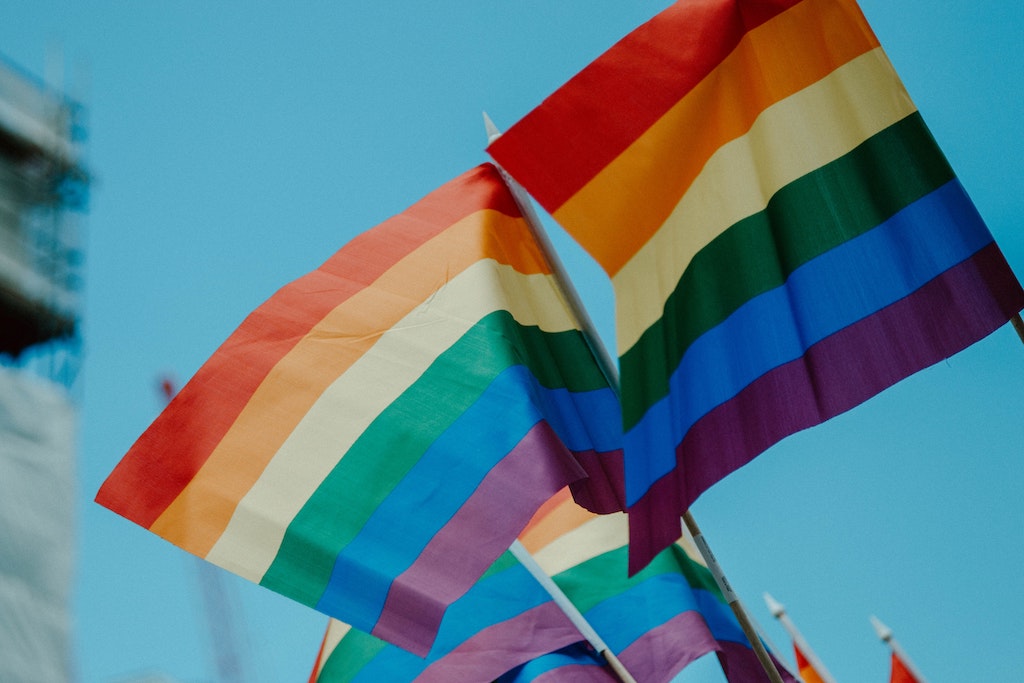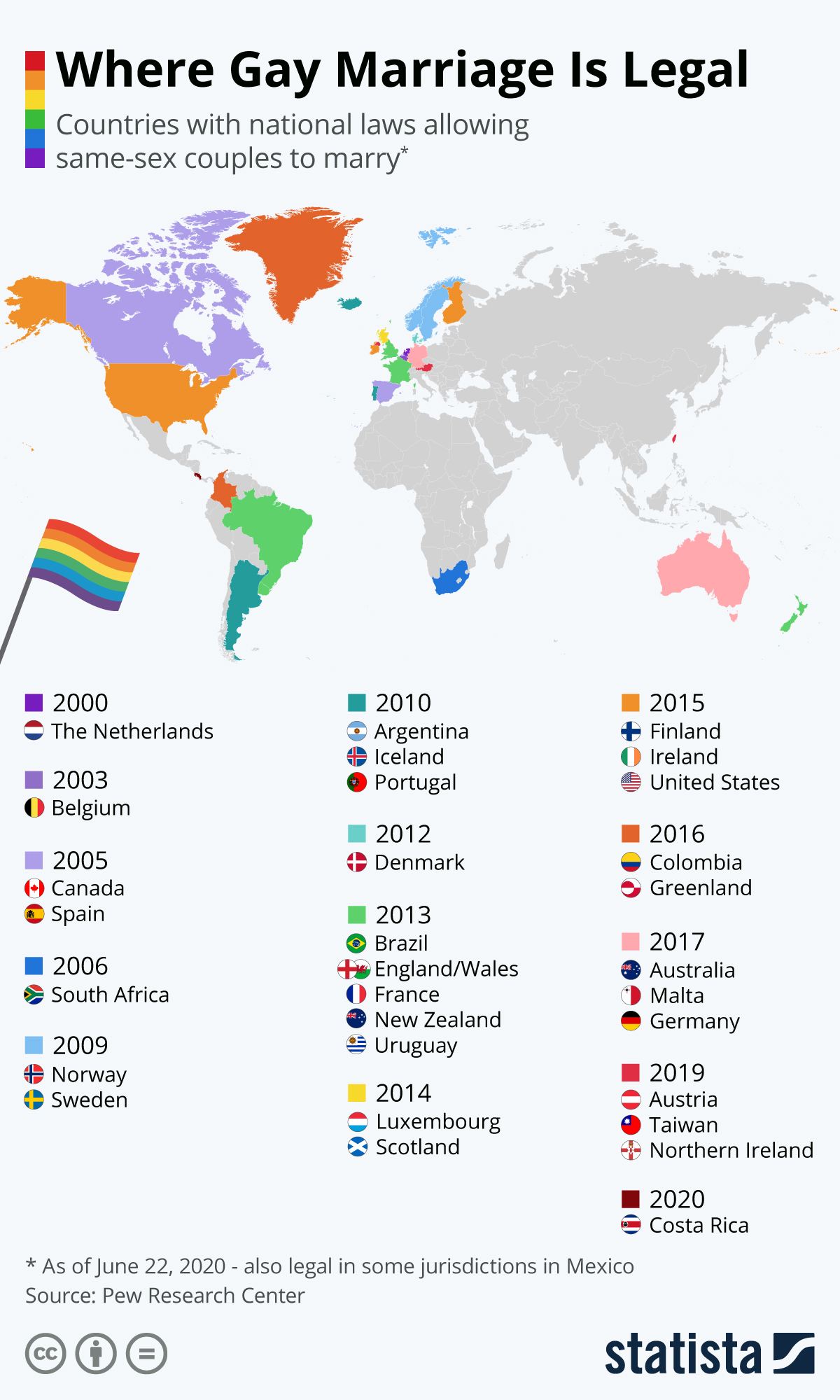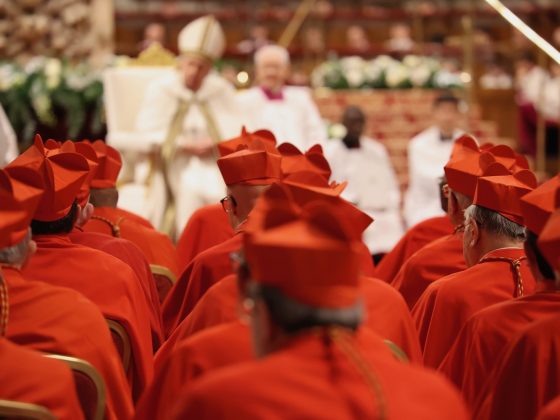At a glance, here are the countries where same-sex marriages are fully or partially legal.
The number of jurisdictions fully or partially legalising same-sex marriages has grown in the past few decades, data from the Pew Research Centre reveals.
Highlights
Right now, there are 30 countries where same-sex marriages fully allowed and one country — Mexico — where it is allowed in some jurisdictions.
The most recent legalisation of same-sex marriage happened in Costa Rica on May 26 this year. This makes it the first country in Central America to have done so. Alexandra Quiros and Dunia Araya are the first same-sex couple to marry after the legalisation.
Other countries which have recently legalised same-sex marriages are Austria, Taiwan, and Northern Ireland. These countries passed the legislation allowing same-sex marriages last year.
Two-thirds of the countries which allow same-sex marriages are located in Western Europe, though there is still a few nations in the region prohibiting it. Meanwhile, Central and Eastern Europe countries have yet to legalise same-sex marriage.
Taiwan is the only Asian country which has legalised same-sex marriage. South Africa, on the other hand, is the only African country where same-sex couples can marry.
Eight countries in the Americas — Argentina, Brazil, Canada, Colombia, Costa Rica, Ecuador, Uruguay and the U.S. — have legalised same-sex marriages. In Oceania, there are two: Australia and New Zealand.
If you want to see more details about the legalisation of same-sex marriages in these countries, you can read the fact sheet compiled by Pew Research.
The fight continues
June is Pride Month. On June 28, the 50th anniversary of the first Pride March will be commemorated.
While the COVID-19 pandemic may stop the large Pride events and traditions from happening due to social distancing measures, the fight for gender equality continues.
As we can see in the map above, while we have made sufficiently made progress in pushing for marriage equality, a huge proportion of the world still doesn’t have legislation which permits same-sex marriages.
More than just not being allowed to marry in most of the countries the world, members of the lesbian, gay, bisexual, transgender, and related communities (LGBT +) are subject to everyday discrimination.
A Cornell study links the discrimination being experienced by the LGBT+ community members to poor mental health and physical health, increasing the risk of depression, anxiety, suicidality, post-traumatic stress disorder (PTSD), substance abuse, and cardiovascular disease.
Because of stigma towards the LGBT+ people, relationships with families and even career prospects are potentially affected. Hate crimes and violence against the LGBT+ community are also rampant.
The harm discrimination, prejudice, and stigma cause to the LGBT+ community is both disproportionate and undeniable. To fight for the legalisation of same-sex marriage and their right to be treated on the whole is in no way asking for some sort of special treatment from society.
If anything, the fact that the community even has to fight for their basic rights is saddening. It is about time we stop depriving people of their rights because of how they were born or who they choose to love.











